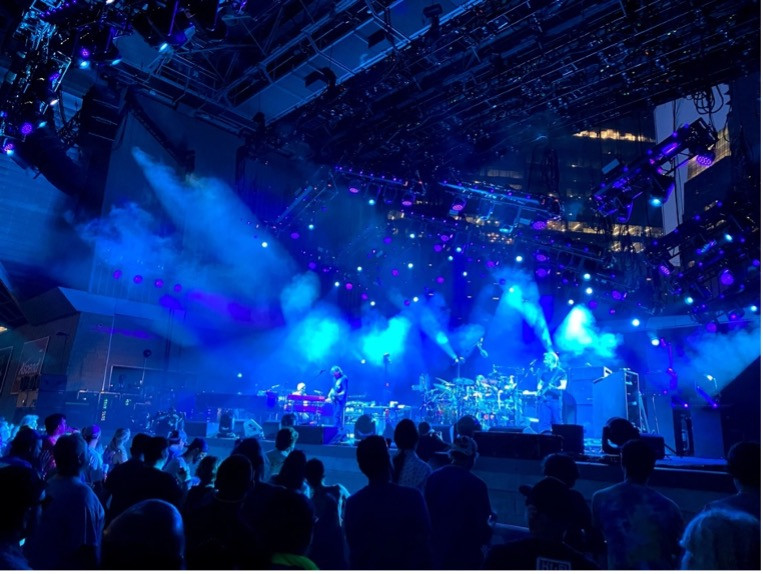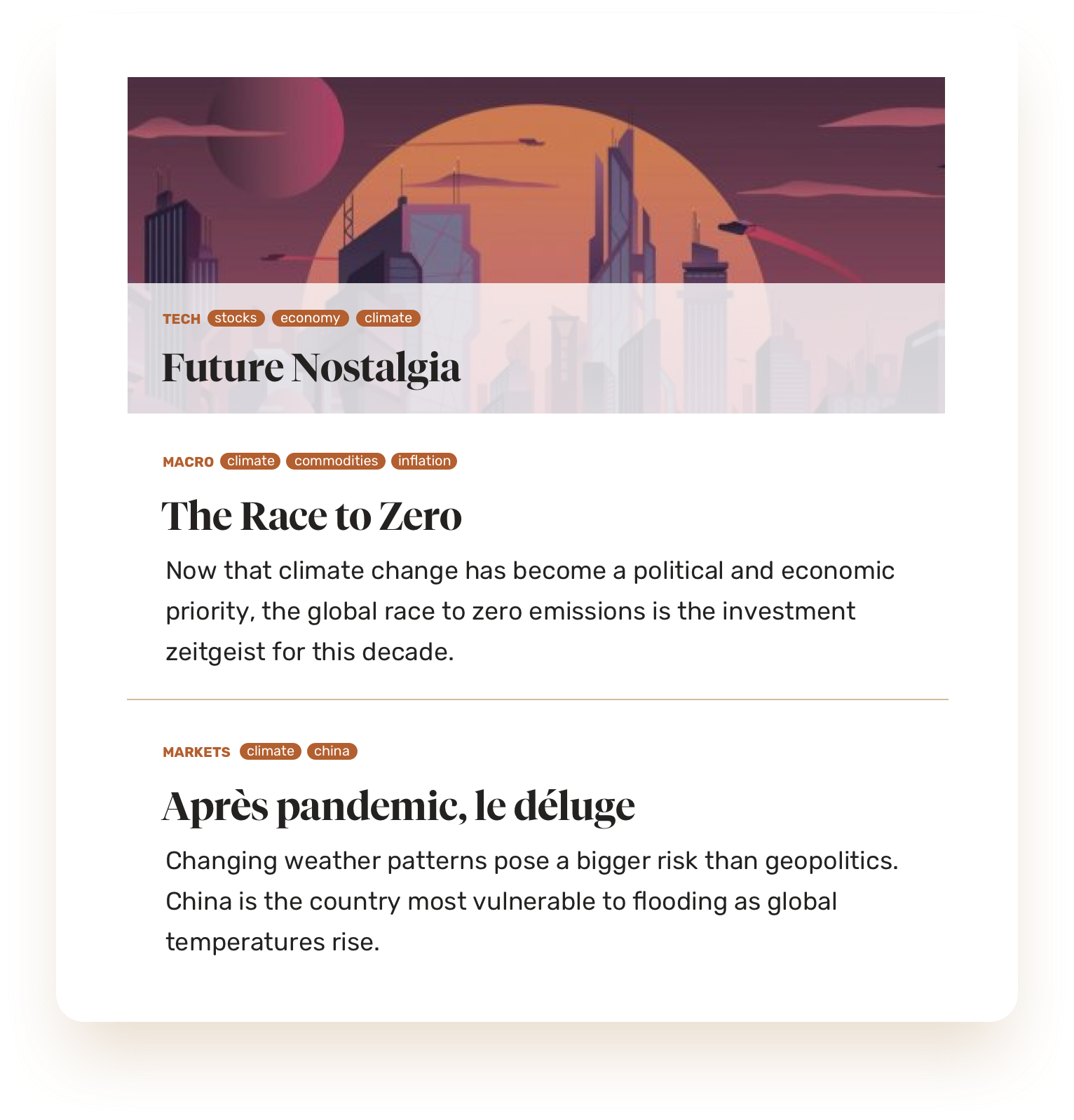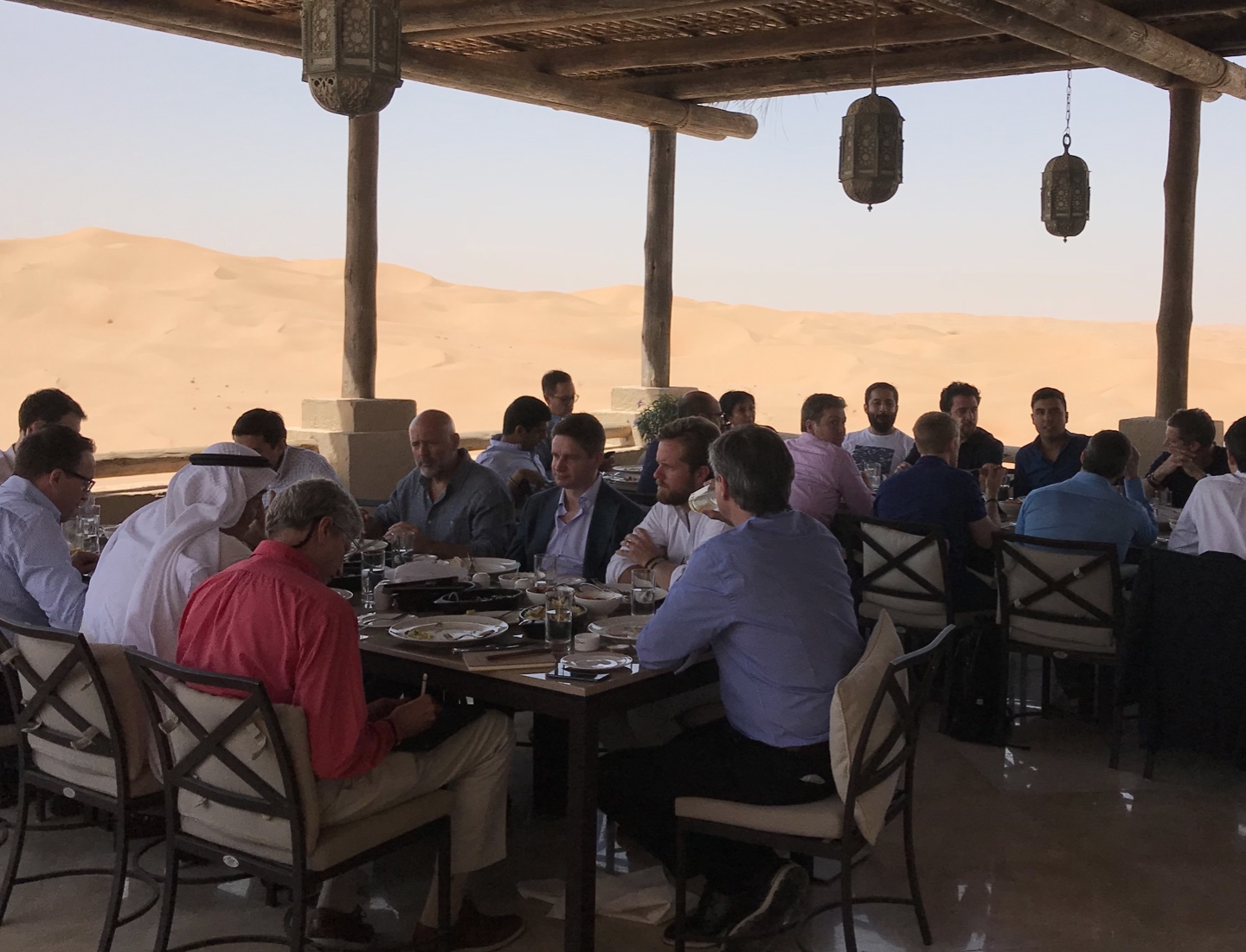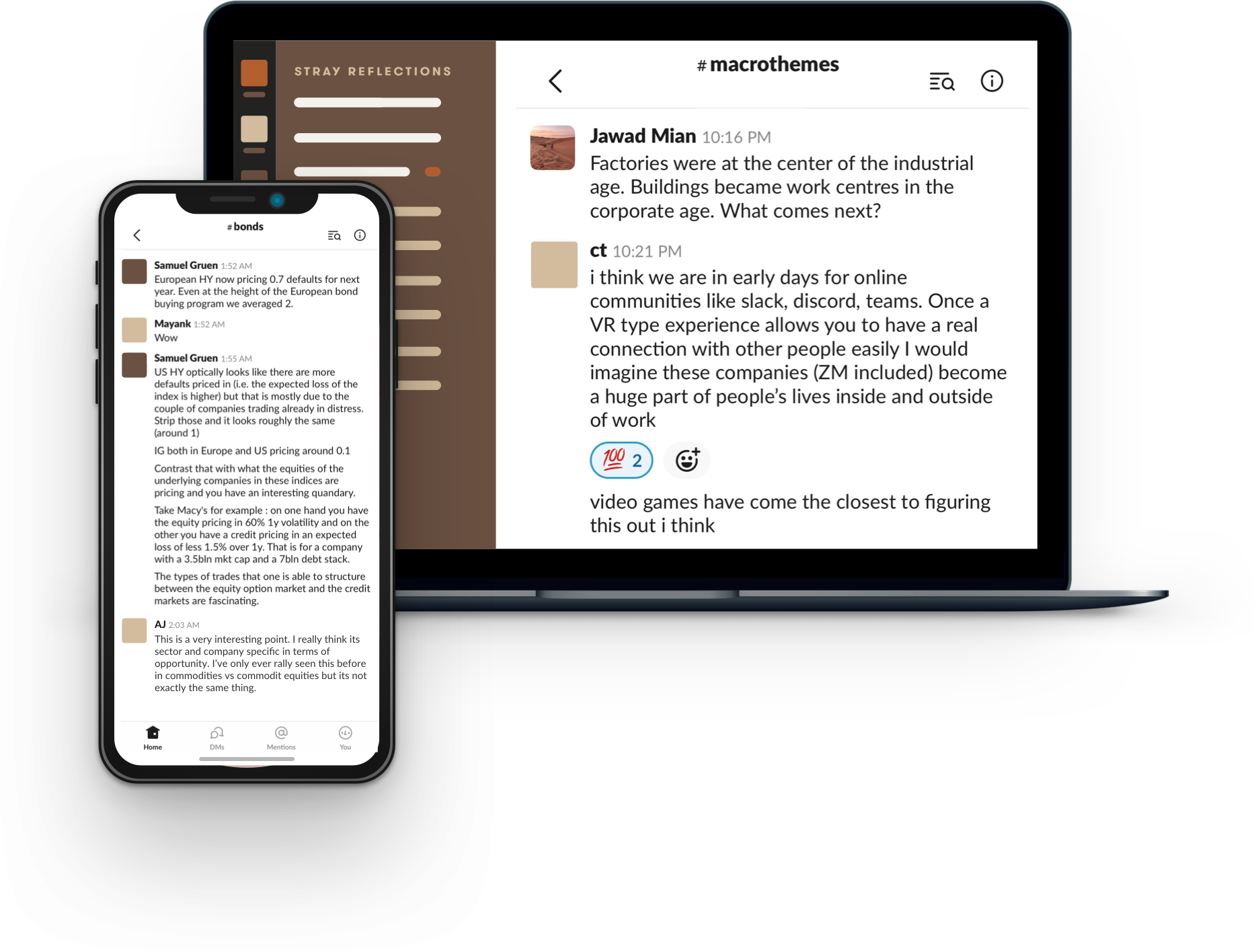Putting our heads together is what Stray Reflections does best. All of us are smarter than any of us. Here’s a summary of the most helpful insights gained from the community in our members-only Slack group last month.
1. Long Red Capitalism (#china)
JL (New Jersey): Do you think the Chinese government actually cares how the equity market performs?
MS (Singapore): No chance. Except to the extent it affects their bigger plans. Hence, they prefer if stocks fall 30 percent over one year rather than 10 percent over one week.
JM (Toronto): China has about 180-200 million retail investors. About 85 percent trading volume is retail. So, they are mostly gambling.
But what Beijing cares for is the effective functioning of capital markets. So primary issuance is an important source of liquidity. (I reckon it’s also a means of wealth distribution. I saw that in Saudi which had similar retail dynamics.)
The SMIC listing, China’s biggest offering in a decade, was a milestone. The Star board became the exchange with the second-most funds raised in the world in 2020, behind Nasdaq and ahead of Hong Kong.
What China cares for most of all is “stability.” That’s political stability, economic stability, social stability, on and on. Applies to the stock market as well. They do care if forces breed instability.
AB (Hong Kong): I do think they care. They want to manage retail losses and systemic risks on the downside which includes curbing excessive leverage and speculation. They are also conscious about rewarding behavior or generating signals that are inconsistent with the party’s ideological principles on the upside.
Bottom line is they want to manage volatility and create stability, so that they can plan, and get on with other stuff. The tech sector grew too quickly, and they reigned it in. Simple as that. And it generated a bunch of negative externalities that they were not comfortable with (including outspoken, mega rich individuals).
As discussed in the China salon, the country has gone from being 100 percent cash to a nearly cashless society in five years. The stock market composition is reflective of this change. Chinese internet stocks are not going to be allowed to grow to FAANG-like levels. But they represent great value here IMHO.
SMIC is a company the government wants to succeed. That should provide implicit support for its equity price. But I don’t see a scenario where they explicitly support.
JM (Toronto): Next year China will convene the twice-a-decade party congress in November which will cement Xi’s third term. They are more likely to want “stability” around that time.
And would a rising stock market help sentiment and boost popularity? Yes. To that extent, Beijing does care about the market.
2. Short Convenience (#tech)
JM (Toronto): I remember Chamath in our salon said that he thinks years from now we’ll be surprised that online penetration isn’t as high as people expected while offline is going to hold up really well, above estimates.
Shop openings have exceeded closings so far this year. If this trend continues, it would be the first time since 2016 that America has added new outlets. For perspective last year nearly 9,600 shops shut for good, while fewer than 4,000 opened. Total wreckage.
Amazon’s share of American retail sales has declined from 7.8 percent in the first quarter to 7 percent in the second (though it remains above its pre-pandemic level of under 6 percent). Shares of Costco and Target have outperformed Amazon by a factor of two and nearly four in the past year, respectively.
CT (Austin): When I worked at an ecommerce website from 2008 to 2010, the idea of free shipping was relatively new. The margins were tight, but conversions were almost 3x even with higher prices. When Prime came out it was game over, the industry never looked back.
If the commodity/shipping forces create a premium on delivery the economics of ecommerce could change considerably. Whole Foods is going to start charging an extra $10 for grocery delivery starting next month, for example.
At a certain point, in person could be the cheap way to shop, and online would be the expensive way to shop, which would be a big change from the last decade.
JM (Toronto): Great observation. Convenience was customer acquisition and retention strategy, and now that you’re hooked, you must pay up.
I like this quote from The Economist: “Targets and Walmarts may be buzzing with activity. But derelict shopping malls marooned amid the cracked concrete of empty parking lots have replaced rustbelt factories as the poster children of creative destruction’s toll.”
3. Short Containers (#economy)
AS (Singapore): Trying to succinctly put up my inflation view:b>1) Inflation presently and in reasonable future is a supply shock and not a demand shock, 2) If inflation runs at 5 percent and wage growth under 4 percent that has to be a demand drag (based on surveys consumers are complaining that high prices for household durables, homes, and cars have caused “the poorest buying conditions in decades,” 3) There is no evidence of surge in aggregate demand.
This means central banks risk responding to supply shock generated inflation with tighter monetary policy. This curbs demand and it could then potentially get clubbed with a supply revival!
CJ (San Francisco): I’ve been considering similar thoughts.
Given the rapid increase in housing prices, the lack of auto supply, and the inability to travel, the largest purchases for consumers are on hold. With no real substitutes for these items, and consumer balance sheets looking good, there’s suddenly (relatively) little to buy with their money so everything else is moving higher.
But this will turn, sooner or later. Housing sales will increase as builders build and buyers acclimate to higher prices. Auto production comes back, and travel opens up again. The baseline demand hasn’t changed that much- and the supply hasn’t been taken offline permanently (different from a post-war rebuild economy) so it will normalize.
JM (Toronto): The cost of shipping a container from China to the West Coast is coming down sharply now. That’s our cue that we have reached peak supply chain fears. Long-term rates for shipping 40-foot containers from China to the US are now below $5,000.
Next thing to watch would be congestion easing in the US’s busiest port complex, LA and Long Beach. But I think shipping costs falling is enough reasons to be bullish.
4. Long Emissions (#climate)
CR (Austin): I was surprised to hear China was turning off power to hit emission targets. How do you rationalize this with continuing to build more coal power plants?
JM (Toronto): I think the question of how to supply energy sustainably is still the most important one. Energy must be affordable, accessible, and acceptable.
China draws 60 to 70 percent of its electricity from coal. The renewable energy resources are insufficient and too intermittent to ease China’s dependence on coal, probably ever. So, energy security is the first reason, which in the Chinese context primarily means coal.
Another reason is building a new power plant is a way to boost GDP for poorer, coal-rich provinces. So local governments launched a wave of new projects last spring to counter the economic crunch from the pandemic. (About 47 gigawatts of coal power projects, more than three times the capacity permitted in 2019). But Beijing is now cracking down on provinces pursuing new coal plants if they already have enough power capacity.
Keep in mind China’s short-term climate target is just to peak its emissions by 2030. That means there’s still space for emissions to grow and a “window” to build more fossil fuel capacity. China’s coal power capacity target allows coal capacity to rise from 1,080 gigawatts now to 1,250 by 2025.
According to plans laid out by most climate research advocates, China doesn’t need to start shutting down coal power plants until 2025, retiring 20 to 40 gigawatts annually through 2030. There’s time.
Under the 14th Five-Year Plan, by 2025, China is supposed to decrease energy consumption per unit of GDP by 13.5 percent and carbon emissions per unit of GDP by 18 percent (compared to 2020 levels). In my opinion, this is the key metric to follow rather than total emissions.
5. Long Parents (#life)
JB (Sacramento): Was noticing how Jawad was asking interviewees about parenting so sharing some random tips from a decidedly un-Tiger like dad.
Our parenting philosophy when they were little was to set clear boundaries and try to limit having to say “no” all the time. For example, we removed breakable items from their reach so that we didn’t have to tell them “no, don’t touch” all the time. We felt that clear boundaries gave them security. Of course, they pushed against them as they get older, but boundaries equal security.
We didn’t like giving “time outs” because usually misbehaving was a result of too much energy. Instead, we would have them run laps around the outside of the house. Generally, it was one more lap than they would like to run. Our kids still talk about it with a smile and say they will do the same with their children.
We had a “whining” chair. When they would whine about something, my wife would say, “Oh, you’re whining. You must want to sit in the whining chair.” She’d say it as if was a treat, for in the whining chair, you can whine as much as you want. A little reverse psychology that worked marvelously. That’s more for the little ones.
As they get older, learn with them. Find a subject they are interested in and learn about it together. Exploring the internet together is a great way to subtly teach them critical thinking (credible source vs fake news).
And of course, read to them every night if possible. But be careful when you start reading stories out of the Old Testament. Our son still doesn’t forgive Jehovah for his treatment of the Egyptian people.
Lastly, understanding that we will make mistakes as parents and that there is only so much control we have on their destiny is a big part of coming to terms with fatherhood. We do our best but in the end their peers will lead to them to make questionable decisions. Those aren’t a reflection of our parenting.
KC (Hawaii): It sounds like you treat your children as people instead of as subordinates. How fortunate for them and for the world in which they will go out into. For I believe children learn and emulate what they live at home.
JF (Cleveland): Thanks for sharing. My 18-year-old son wants a motorcycle. We are learning about it together. Seeing the bright light at the end of his teenage years where maybe, just maybe, Dad knows a few things.
(SG London): The one cardinal rule we have in parenting is making sure we ask the question: why are we making this decision or taking this approach? So much of parenting is automatic responses without really considering the reason for the response.
JM (Toronto): What I find striking (and oftentimes scary) is how different kids can be of the same parents living in the same household. We are four brothers. Each of us is totally different. What does that mean for parenting? I’ve got three girls (2, 4 and 7) and I can already see how each is going to be different.
Long Kindness (#life)
CT (Austin): The last few weeks my buddy and I have been touring with Phish, living in Airbnb’s and hotels, doing what we can to get to the next show.
Last night, we were sitting in the lawn area waiting for the show to start, chatting about how much fun the night before had been and how beautiful the Nashville skyline was. The sun was just beginning to set. The breeze was slowly picking up.
Out of nowhere, a random stranger turned around and asked if we wanted to go to the pit area, the designated space directly in front of the stage. We had not been talking to him or even thinking about this possibility but we gladly accepted.
He handed us two green bracelets and off we went, almost in disbelief. He asked for nothing, just smiled, and went back to his lawn chair. We got down there and really had nothing to say. Just laughter, the kind that you do when you’re really not sure what is going on.
Then the guitar amps fired up. It was surreal to be so close to the music, a moment of my life I will never forget. We danced with the biggest fans, saw the light show up close and personal. When you’re that close you feel the music as much as you hear it. A full body experience.
It was a powerful reminder to be generous and kind as often as we can be. There is a special magic that comes when we are this way not just to our friends and family, but to strangers. It gives me hope that there is a path forward in this world as long as we take it day by day, doing the best we can.
The encore’s lyrics put it perfectly for me:
I was taught a month ago
To bide my time and take it slow
But then I learned just yesterday
To rush and never waste the day
Well I’m convinced the whole day long
That all I learn is always wrong
And things are true that I forget
But no one taught that to me yet








